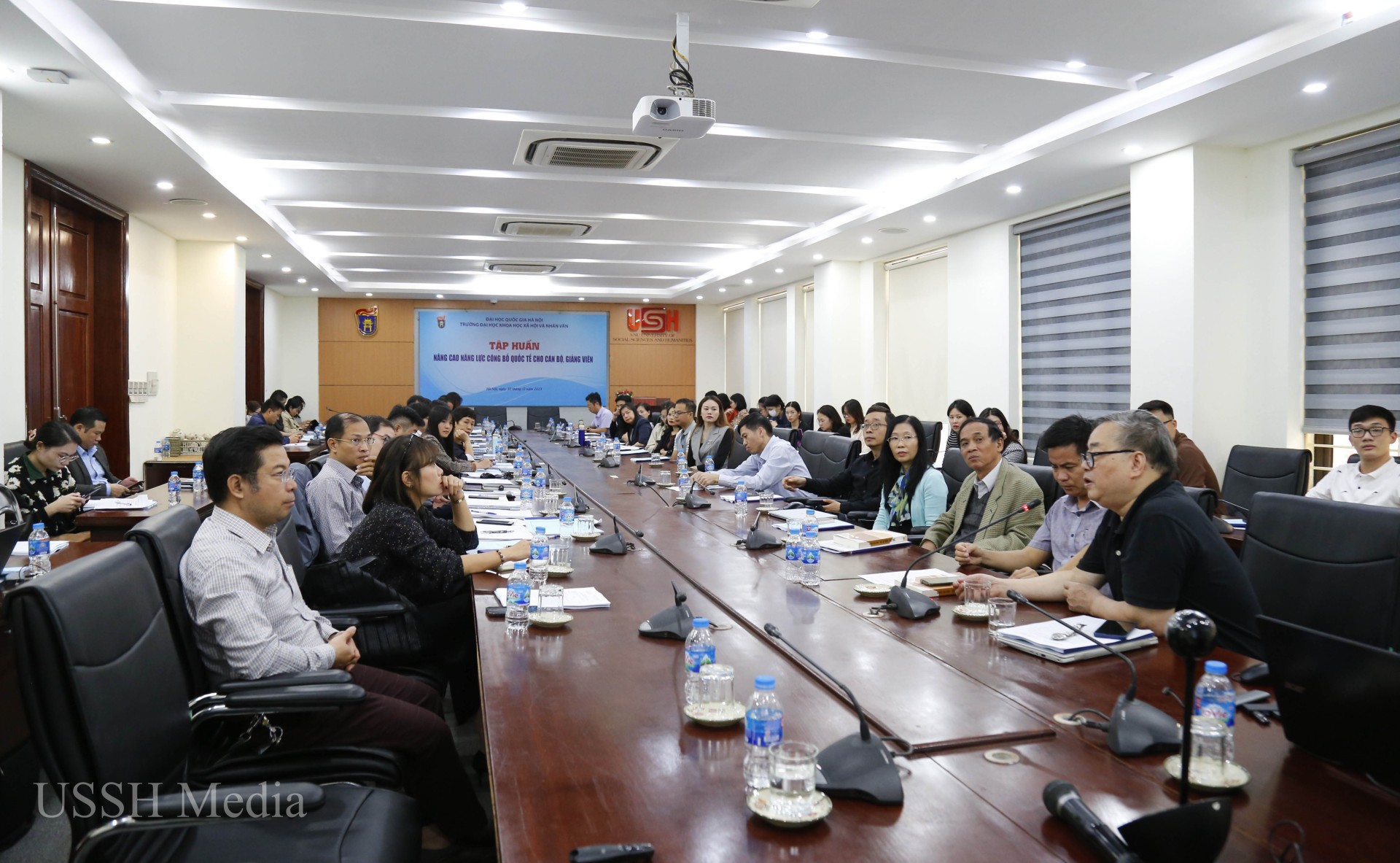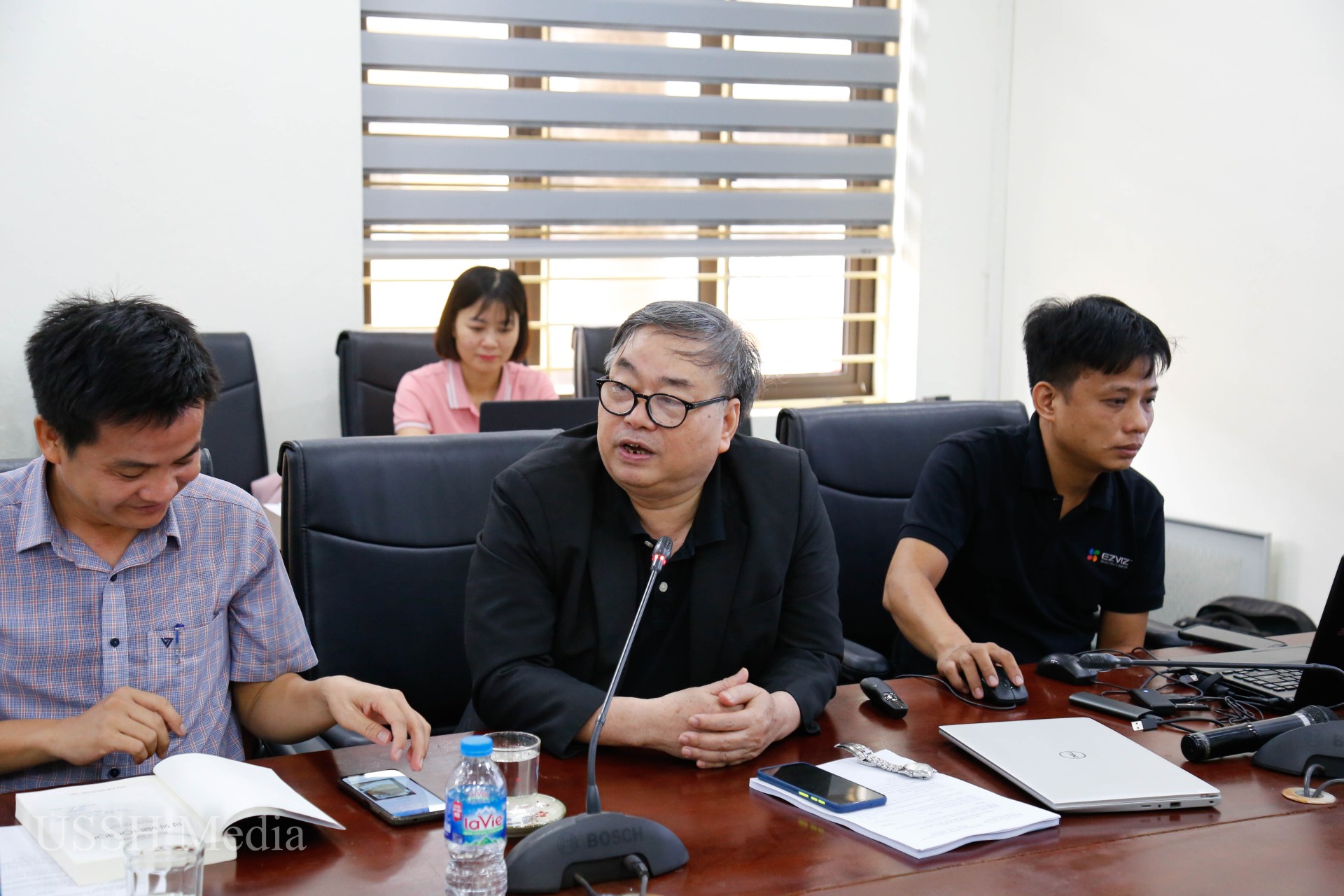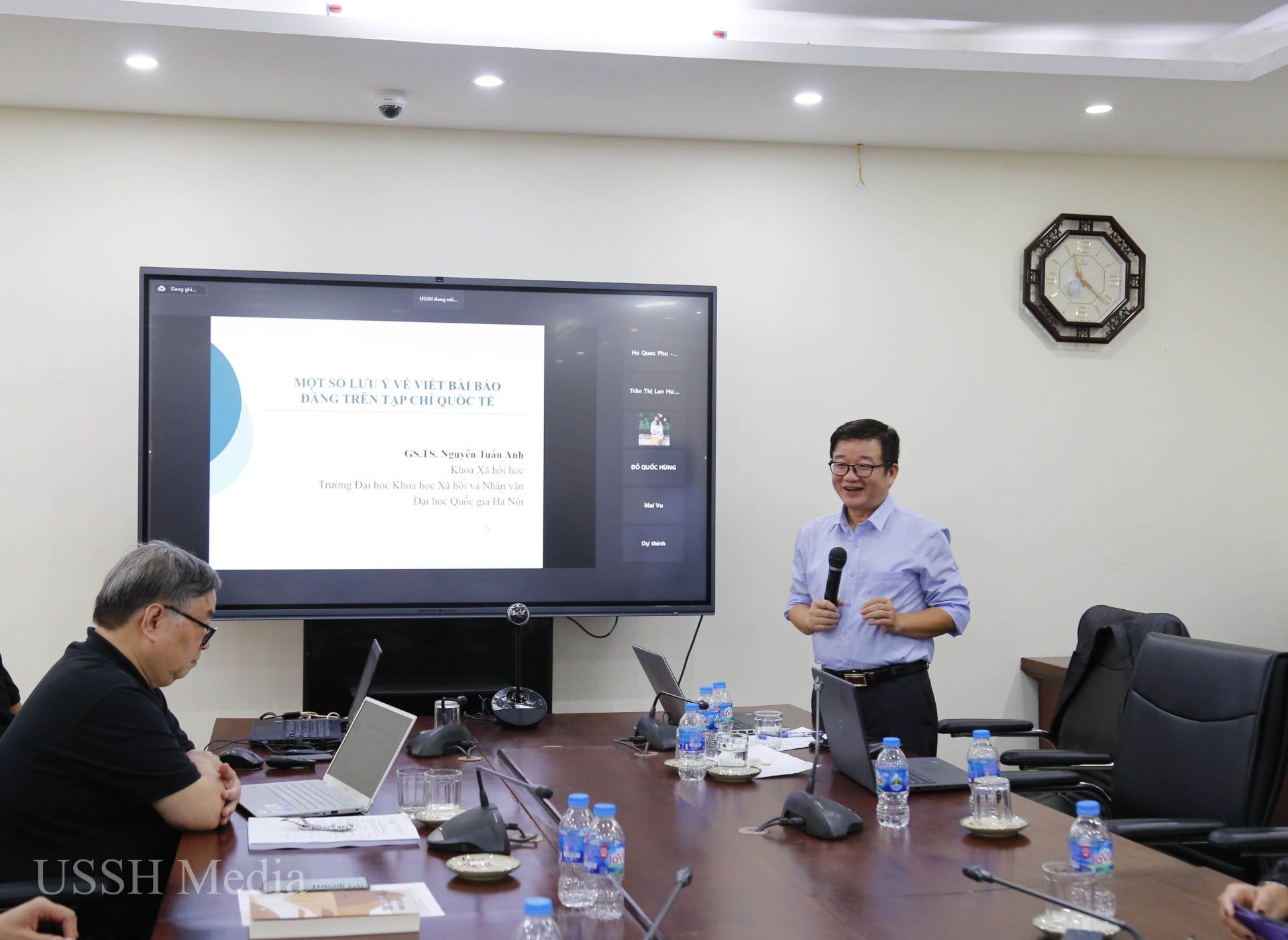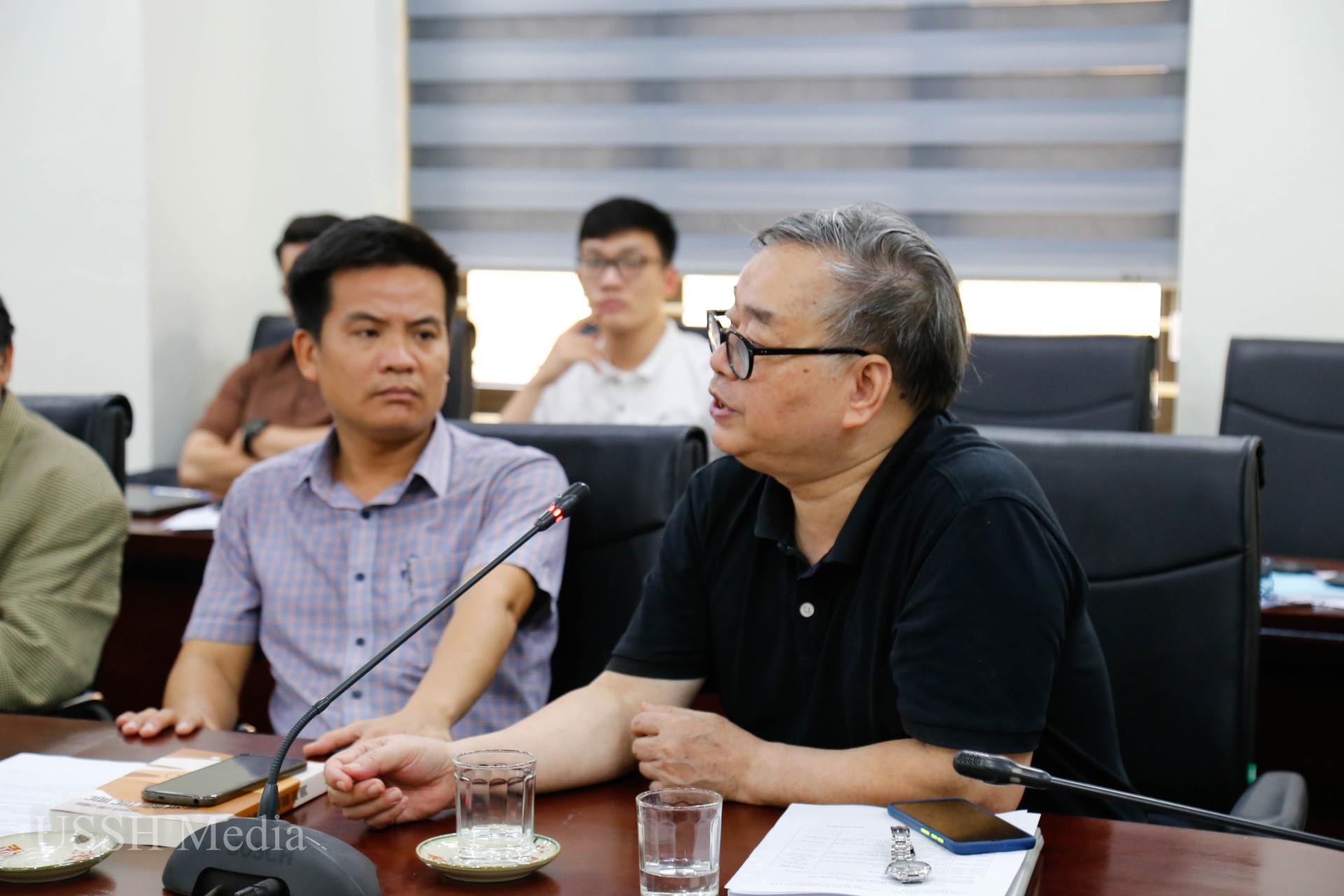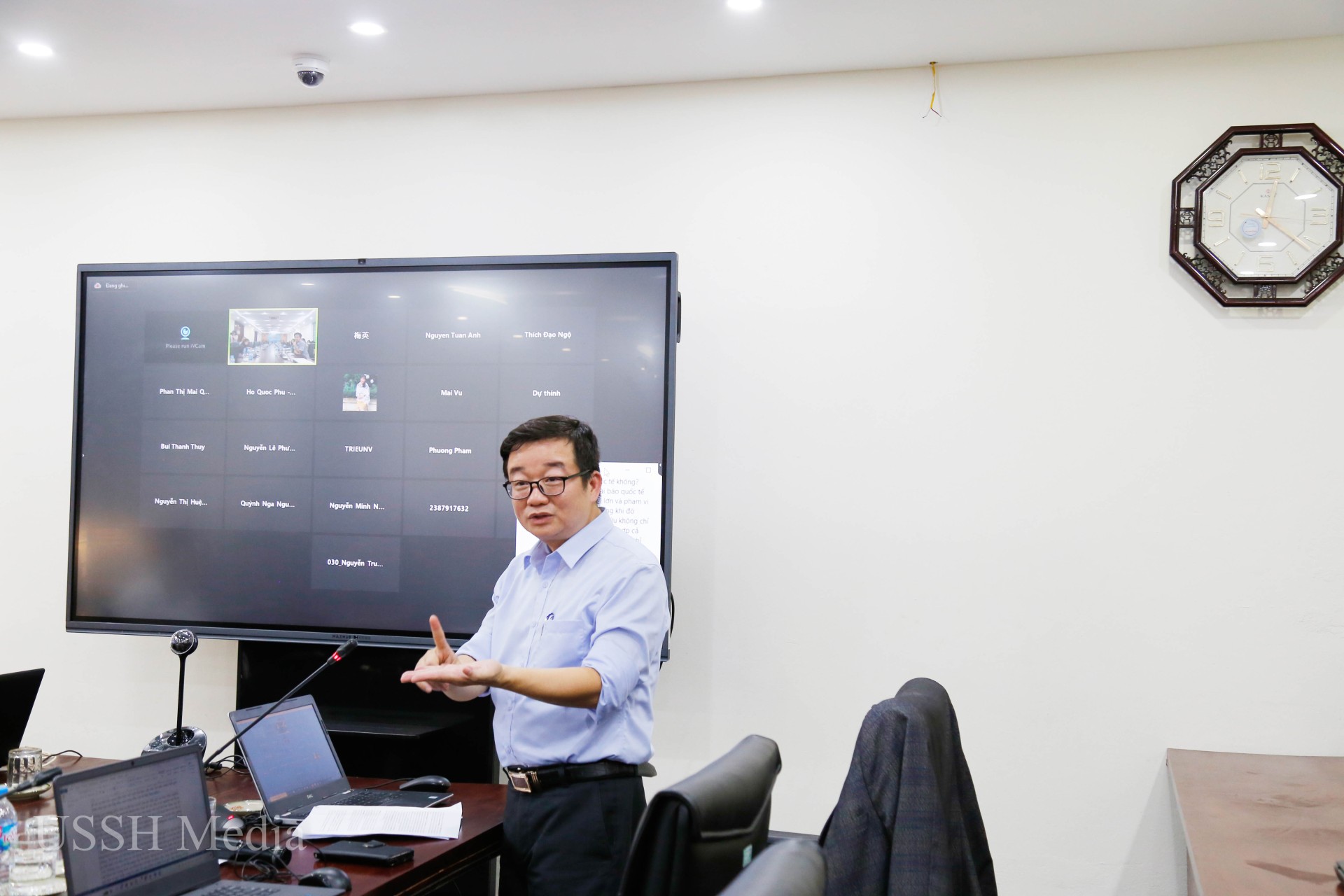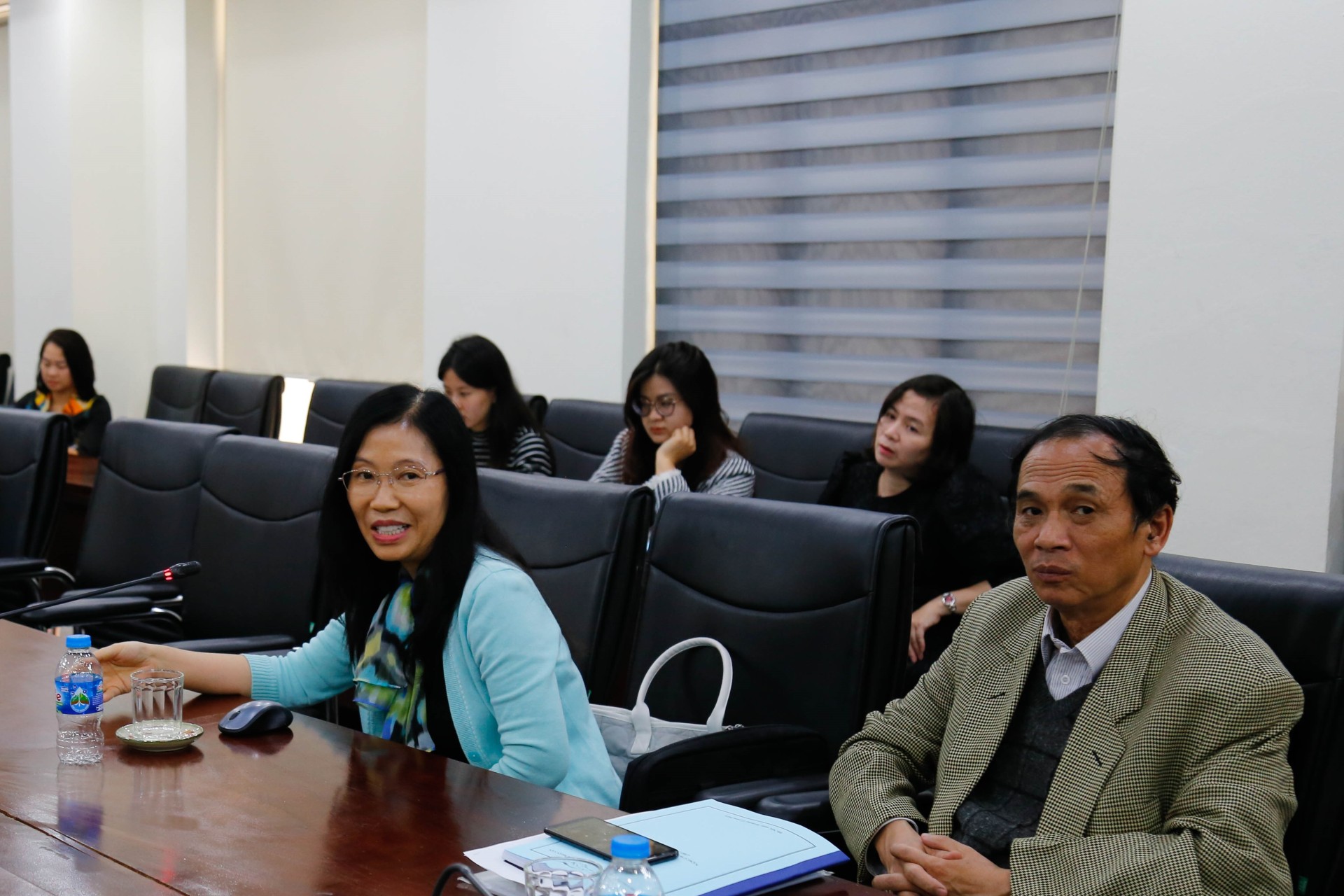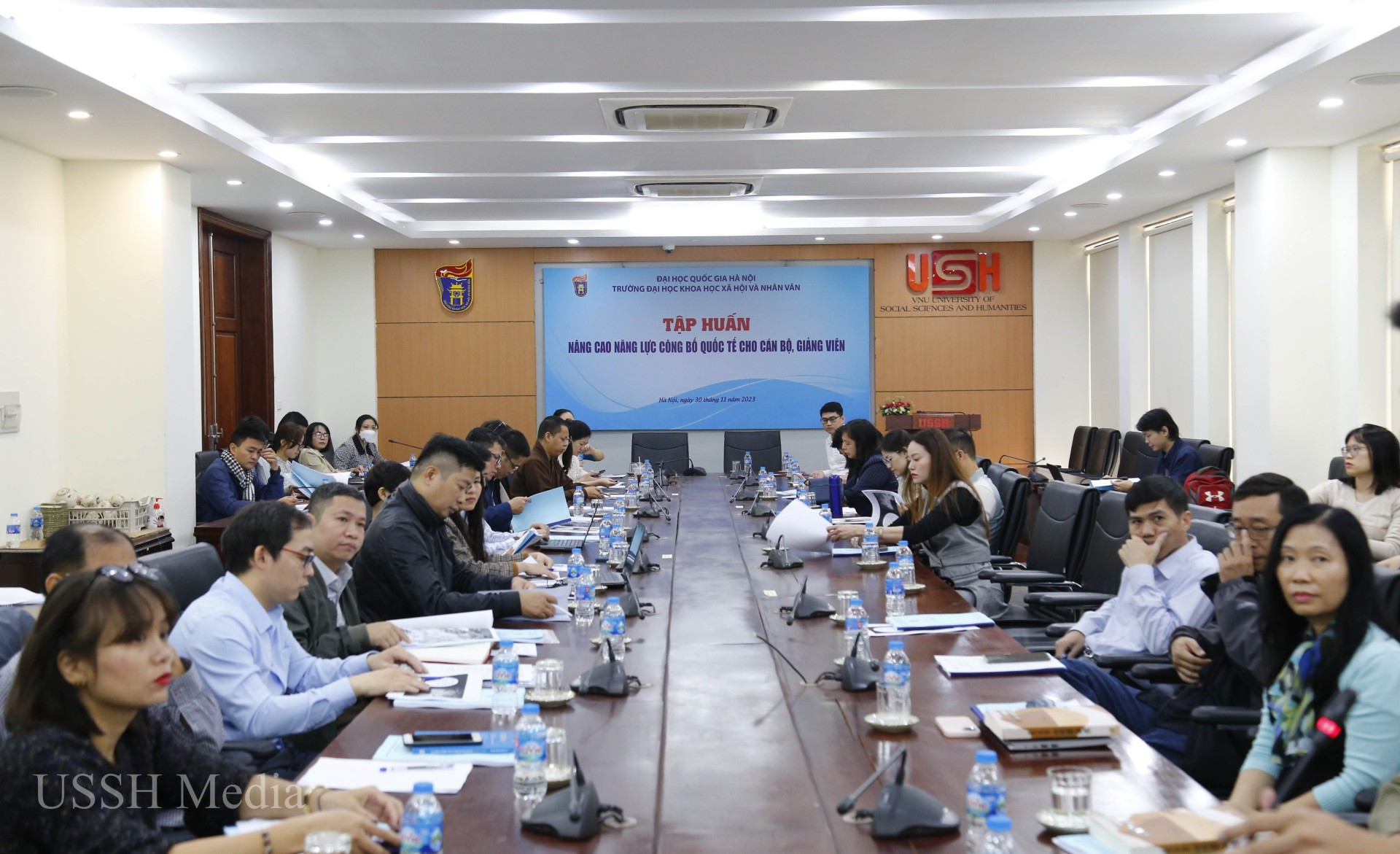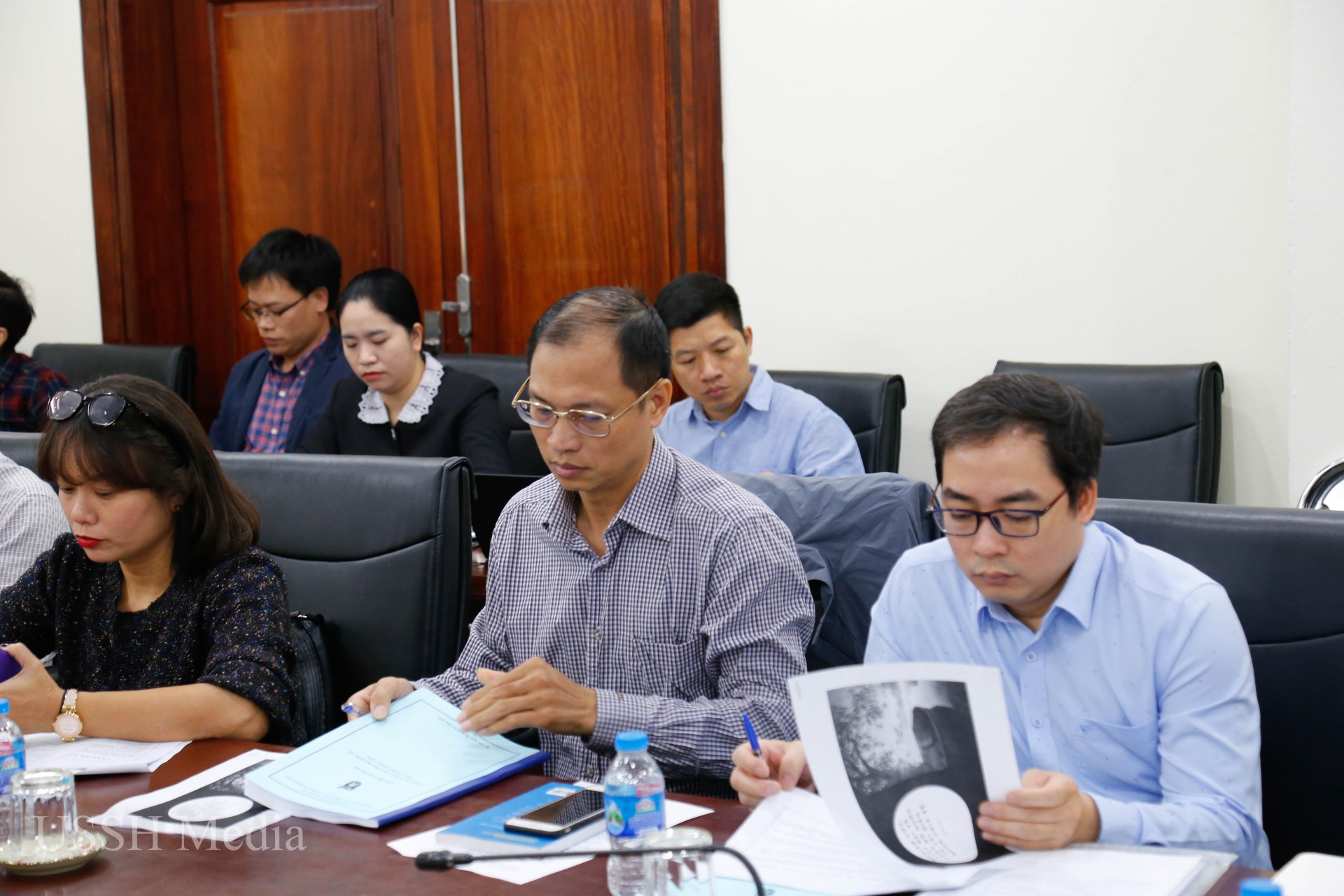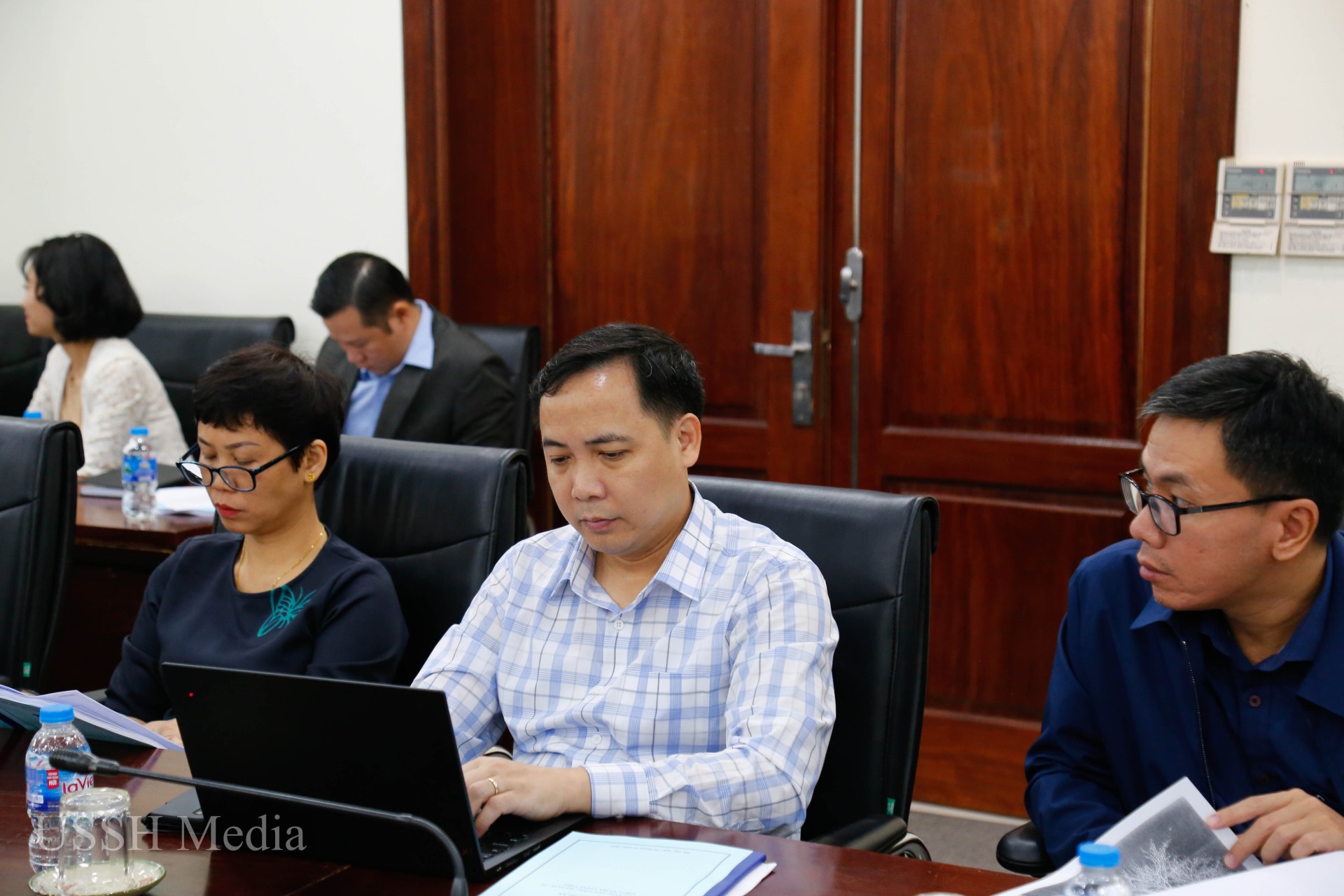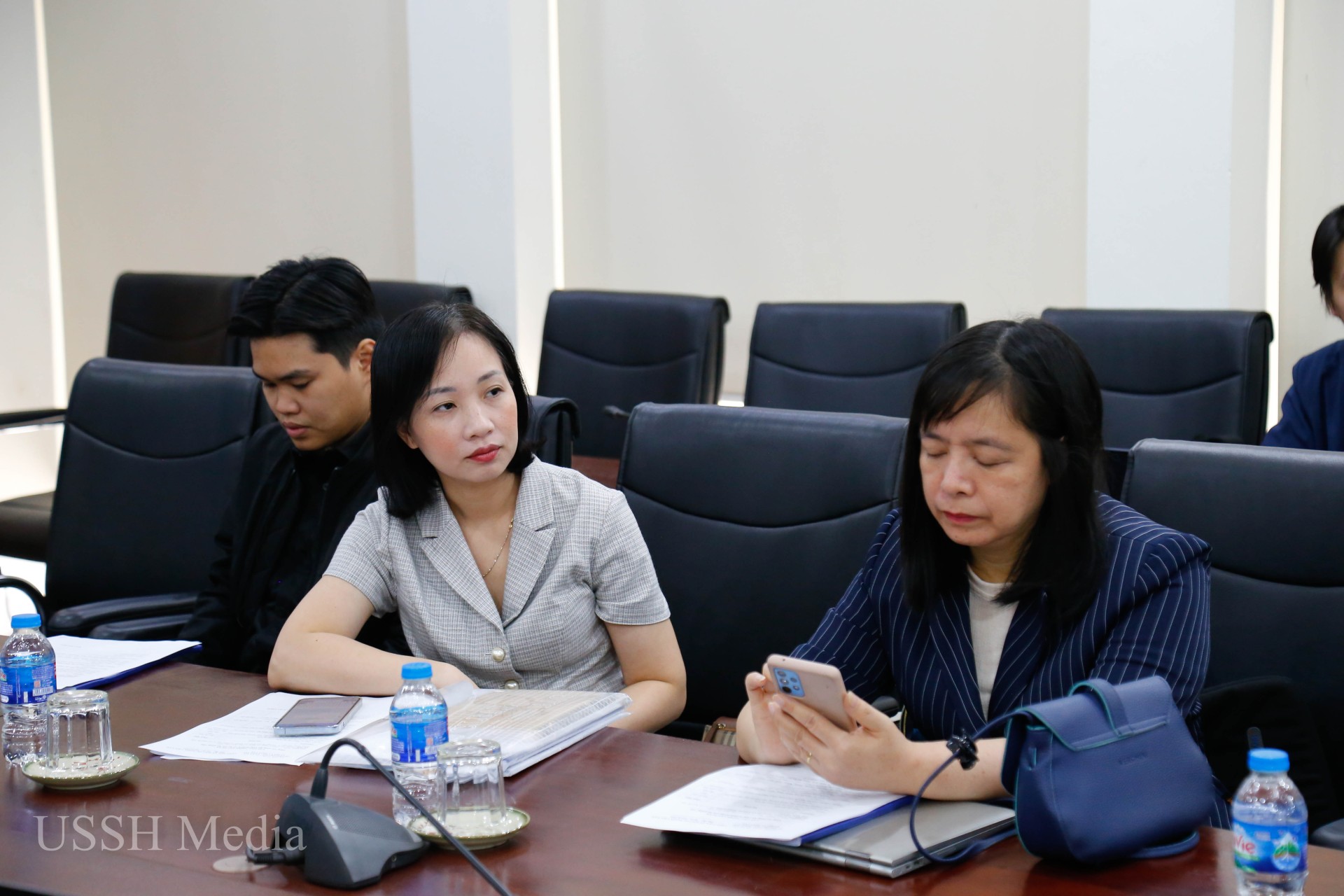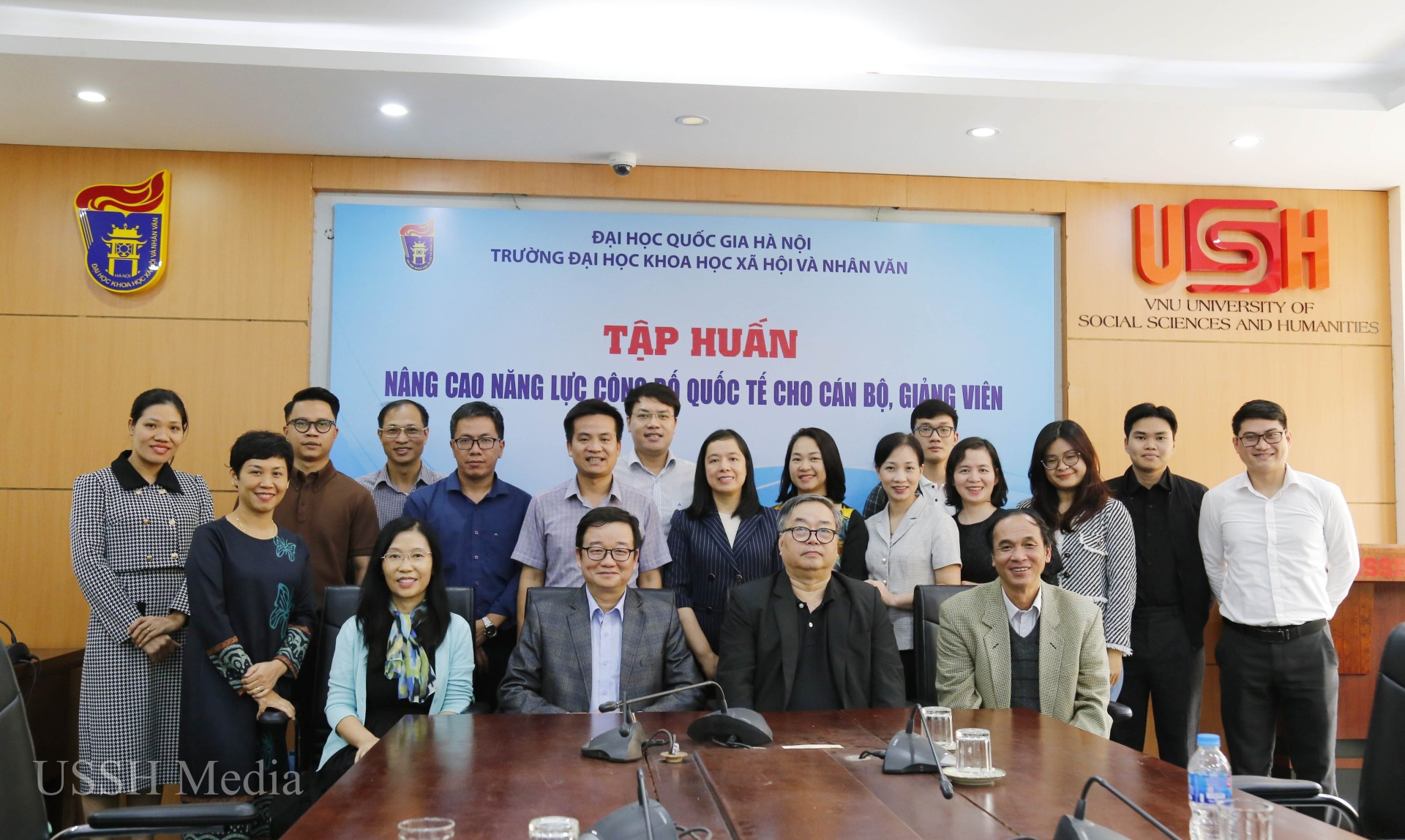Attending the training session were representatives from the Board of Directors, leaders of faculties/departments, offices, and centers under the University, as well as a large number of staff, lecturers, and postgraduate students studying at the University (both in-person and online).
The training session featured presentations from speakers from various faculties and departments: Prof. Dr. Nguyen Van Chinh (Faculty of Anthropology), Prof. Dr. Nguyen Tuan Anh (Faculty of Sociology), Assoc. Prof. Dr. Nguyen Quang Hung (Faculty of Philosophy), and Assoc. Prof. Dr. Nguyen Minh Hang (Faculty of Psychology).
Dr. Trinh Van Dinh (Head of the Scientific Research Management Department, VNU-USSH) shared: the results of the university's science and technology activities in recent years have achieved significant achievements, the research capacity of lecturers and researchers has been enhanced, and the participation of students has been increased. According to statistics from the past 5 years, university staff have published 644 international articles, including 238 articles in the ISI/Scopus database. In 2023 alone, lecturers and staff of the university published nearly 100 articles in international scientific journals. However, this number is still not commensurate with the high-quality human resources of the university, as well as the targets set by the Vietnam National University, Hanoi. Therefore, to meet current requirements in university rankings, keep up with global trends, and promote and encourage faculty members, especially young ones, to conduct scientific research, the University has implemented several policies: investing in funding and rewarding scientific research. The training and exchange program held on November 28th and 30th is also part of the University's overall policy to encourage and support faculty members in conducting research and publishing internationally. This activity has received the participation and sharing of many leading scientists in various fields, with considerable experience and a substantial volume of international publications.
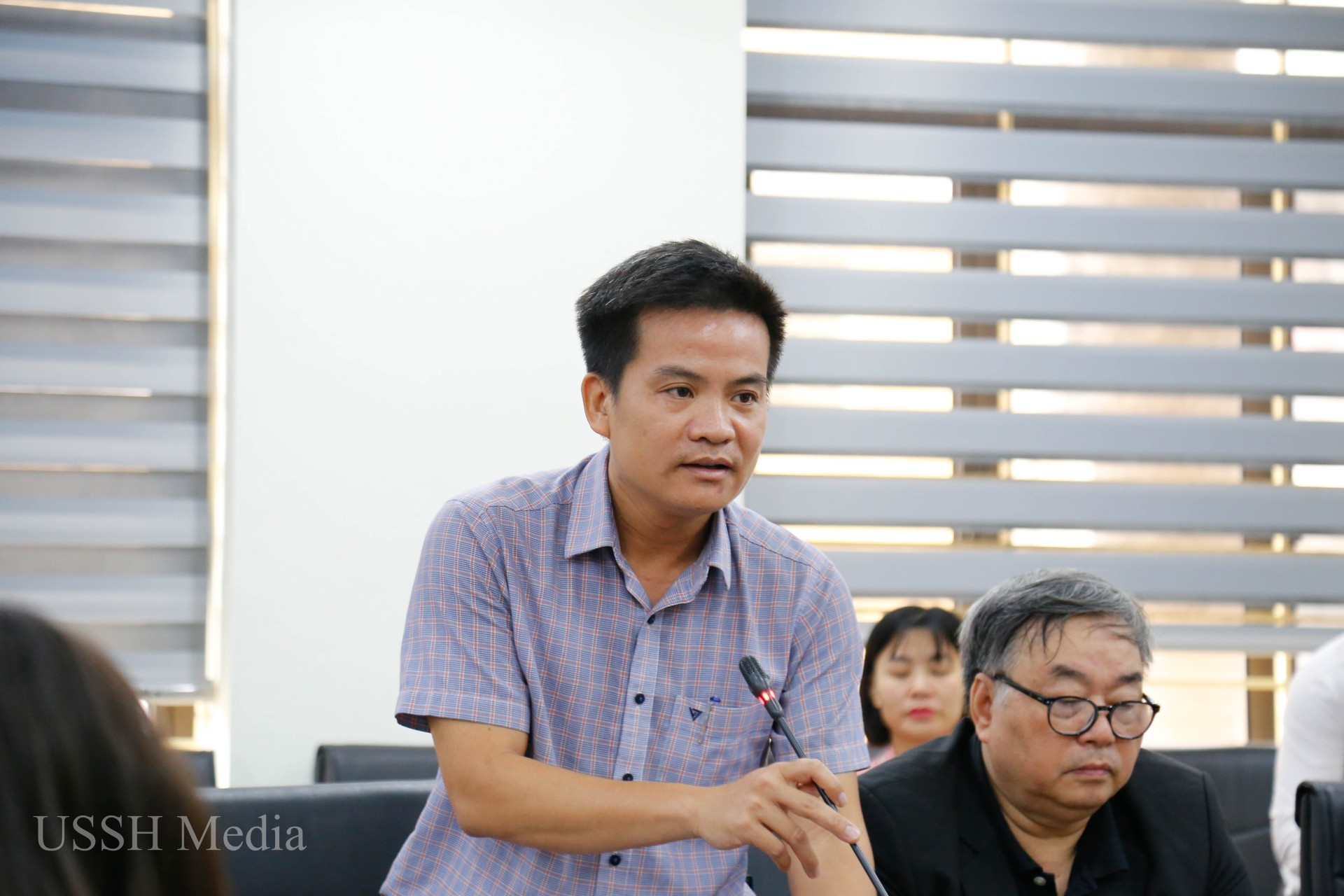
The Head of the Scientific Research Management Department gave a speech.
With experience publishing articles in numerous prestigious journals worldwide, the speakers discussed in detail how to approach a research problem, structure a scientific paper, and provide specific considerations for successful publication.
The training session began with a lively presentation by Professor Dr. Nguyen Van Chinh. According to him, the process of researching a problem or scientific topic must start with building a strategy to answer the research question/task posed. It's necessary to consider how the problem has been researched worldwide, what lessons have been learned, what gaps remain, and what new aspects one's own research offers, contributing to science and practice.
When journals consider a paper for publication, they pay particular attention to citations, as this not only demonstrates the author's seriousness and professionalism but also reflects ethical research practices. Therefore, citations must be transparent and accurate, including all references from other scholars; otherwise, the paper will almost certainly be rejected. After finding a journal suitable for your research topic, you need to carefully study its rules and format to avoid rejection not because of the quality of your paper, but because you haven't followed their regulations. In reality, each journal has its own unique and very specific rules.
Professor Nguyen Van Chinh also noted that after completing all parts of the article according to the journal's format before submitting it to journals, it is advisable to have a native speaker review and edit it to ensure it meets international standards of writing style.
Professor Nguyen Van Chinh added that the Department of Anthropology currently has two foreign experts who are always ready to assist in reading and editing articles if authors require it.
Associate Professor Dr. Nguyen Minh Hang (Director of the Interdisciplinary Research Center, expert in the field of psychological counseling and therapy) shared: before writing a specific paper, it is necessary to note a few points: it is essential to establish personal data (determine research direction, align with global research trends, introduce your field and capabilities on various channels so that scientists worldwide know about you); you should exploit and utilize all international resources (participate in international research groups to have the opportunity to access new research trends worldwide and work with leading experts); pay attention to regulations on copyright and research ethics in each specific field (anthropology, psychology, sociology, history, etc.).
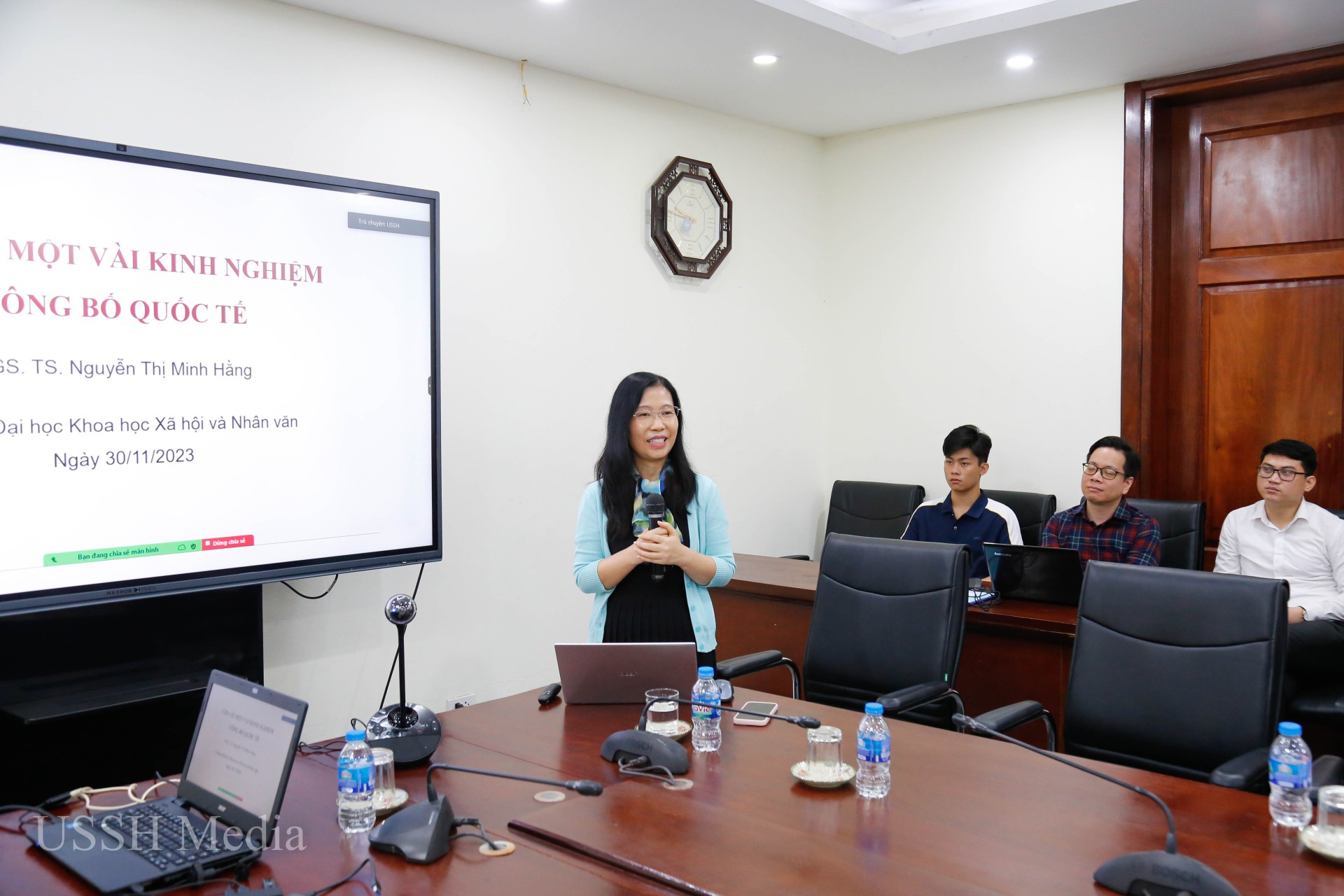
After selecting the problem and completing your research, the key to ensuring your paper is accepted by the publisher or journal, besides strictly adhering to the journal's structure and guidelines, is to write a truly engaging and captivating introduction that highlights the novelty of your research.
Associate Professor Dr. Nguyen Quang Hung: Let's discuss in detail the selection of research topics/problems: it must be a problem you are truly passionate about, consistent with the research direction of scientists worldwide, and must have novelty and a direction for further development. However, novelty in science is not just about problems that no one in the world has researched or very few have researched; even problems that have been researched for hundreds of years, with many published works, can still be considered novel and valuable to the development of that scientific field if the author finds new sources of information or applies new methods to conduct the research.
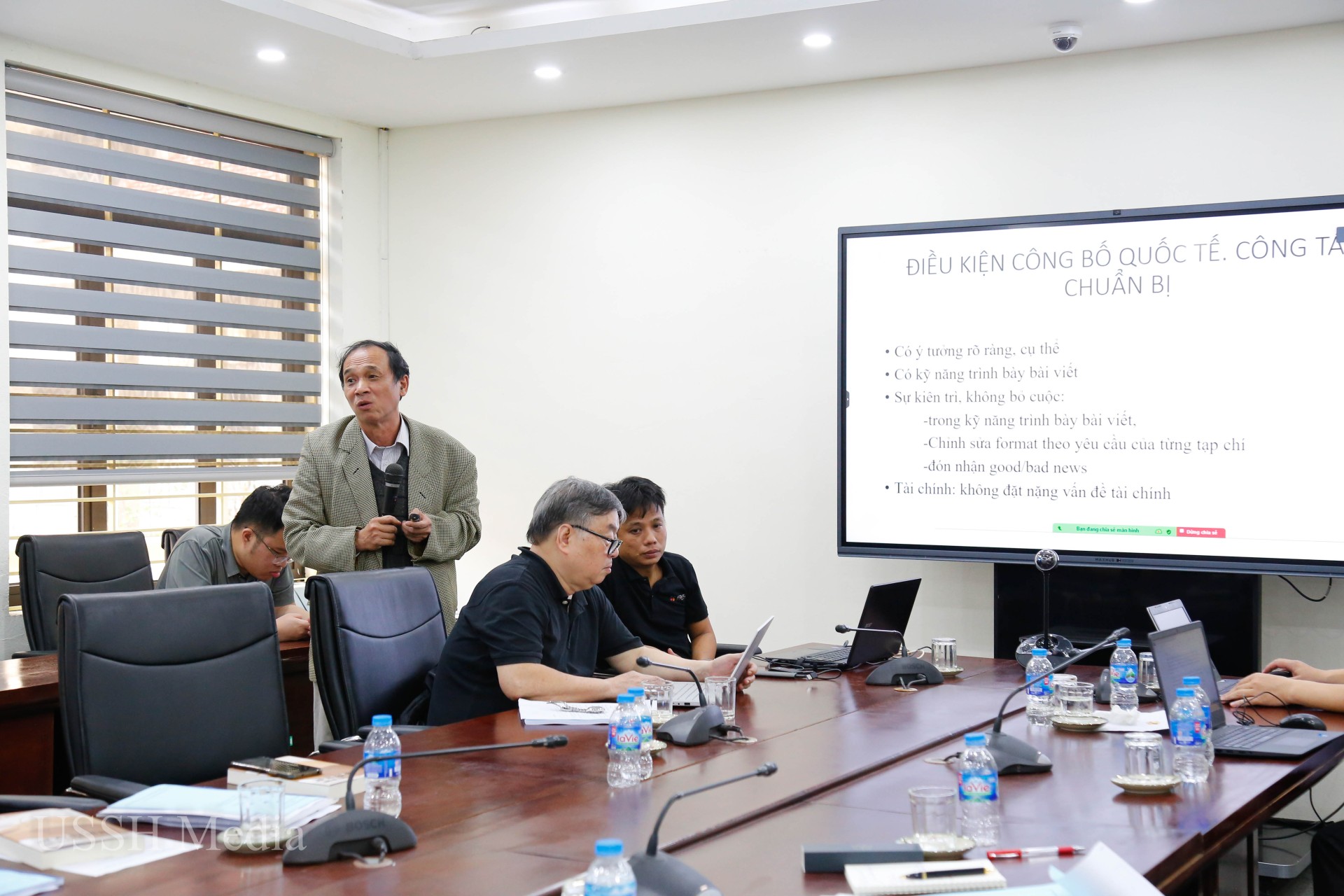
With his experience as a sociology expert, before sharing very specific issues on how to write a good, highly publishable paper, Professor Nguyen Tuan Anh provided a very insightful, specific, and vivid analysis of the scientific research process in general: the essence of an international paper is to publish the results of a research process. According to Professor Nguyen Tuan Anh, from a certain perspective, the core of scientific research is collecting and analyzing data to see what the data reveals, based on research methods and logic.
The training session started at 8 a.m., but even at nearly 1 p.m., the auditorium, both in person and online, was still packed with faculty members and researchers following the experts' presentations and engaging in lively discussions, raising several difficulties encountered in finding suitable journals, translating them into English, and responding to peer reviews from journal editorial boards.
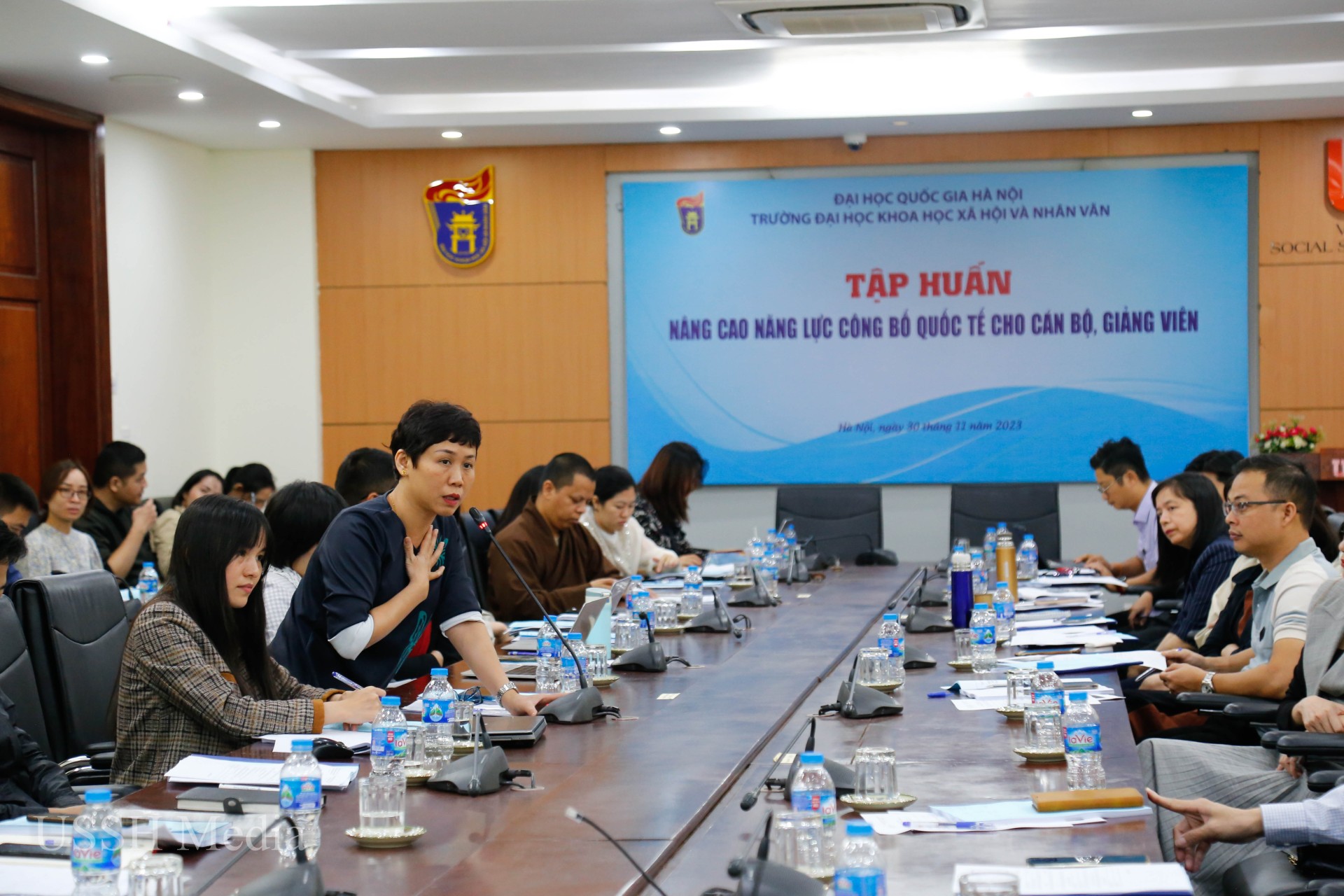
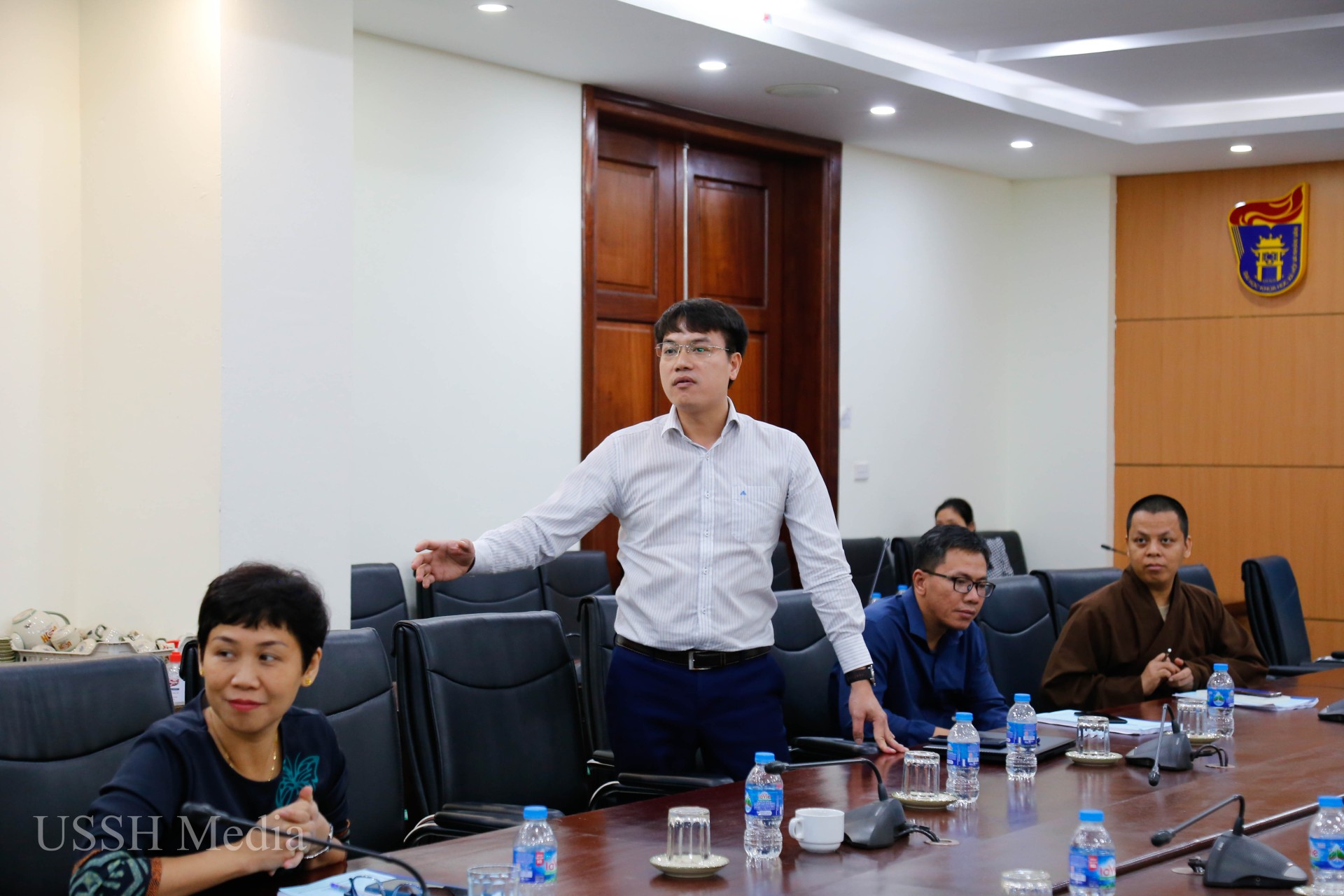
At the same time, the lecturers and young researchers expressed their deep gratitude to the scientists who shared invaluable information on common issues in scientific research: how to identify research problems, theoretical foundations, research methods, etc. In addition, with their experience publishing dozens of articles in many prestigious journals worldwide, the experts pointed out very specific issues related to writing an article: the structure of the article, how to write an engaging introduction, how to cite sources, how to create a bibliography; as well as some points to note during the process from submission to publication.
Through the insightful presentations from the speakers, faculty and staff gained a wealth of useful and interesting knowledge about scientific research in general, as well as specific techniques for writing scientific papers for publication in international journals. This was truly a valuable scientific event, not only providing valuable knowledge and experience but also instilling in faculty, staff, and especially the students and researchers studying at the University, a passion for scientific research.
The speakers engaged in very open and thorough discussions, addressing every concern raised by the participating instructors at the training session.
Concluding the two training sessions, on behalf of the Organizing Committee, Dr. Trinh Van Dinh expressed gratitude for the participation of the scientists in the research and training activities of the University. Despite their busy schedules, the professors dedicated their valuable time to participate in the two sessions, exchanging and sharing with a large number of students, researchers, and faculty members. These sharing sessions provided extremely useful information on scientific research in the social sciences and humanities, as well as valuable experiences from the international publications of individual scholars. The training sessions received enthusiastic participation and lively discussions from a large number of faculty members, students, and researchers from across the country studying at the University. In the near future, the school will continue to organize several exchange and training sessions on more in-depth topics: how to find reputable and relevant research topics and journals, how to write an engaging and effective introduction, and how to create citation lists using supporting software, etc.
Some photos from the training session.
